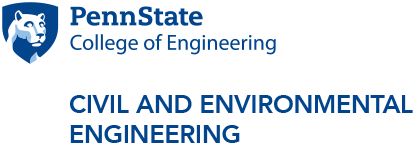Catalyzing Change in the Geosciences
Abstract
The geosciences, including hydrology, biogeochemistry, geomorphology, engineering, and the many other disciplines river researchers come from, remain some of the least diverse fields in STEM. As importantly, progress to diversify our fields over the last half century have mostly benefited White cis-gendered women scientists. Those of us who do not “fit” the model of “who a geoscientist is” often spend years being told to fit in, as society and science tell us that we need to shed (or mask) our identities as womxn, as survivors, as mothers, as leaders, in order to succeed. In this talk, two geoscientists will share how they learned that embracing their whole selves - including their intersectional identities - was the best way for them to be the best teachers, mentors, researchers, and leaders they could be. Speakers will share ways for each of us to put “our words into action” as we foster inclusion and reclaim our agency, with ample time for discussion, reflection, connection, and networking.
Bios
Dr. Rocío Paola Caballero-Gill is a geoscientist whose research focuses on climatic and oceanographic change in the geologic past. Currently, she is the Principal Investigator and Lead Director of The CycloCohort Program - an early-career springboard for inclusion, diversity, equity and justice focused leadership in geoscience & astronomy. The CycloAstro project is a multi-million collaboration between six main research institutes in the US that aims to investigate astrochronology and Solar System dynamics, while building inclusive, diverse, equitable, and just spaces in geoscience and astronomy. There are six projects within CycloAstro, The CycloCohort Program is one of those six projects. As the Lead Director for the program Caballero-Gill works with a diverse team co-creating structures, systems and content that relies on equity to support a suite of early-, mid- and late- career scientists. These include an improved strategy for recruiting, assessing and on-boarding new, early-career team members, creating mentorship networks within the team and more. CycloCohort is a unique program and opportunity, hoping to create lasting change beyond the duration of the project. Passionate about fostering community, she co-founded GeoLatinas, an organization that empowers Latinas to pursue and thrive in careers in Earth and Planetary Sciences. Caballero-Gill’s is the inaugural recipient of AGU’s award for Advancing Inclusive Excellence in STEM, for her efforts supporting a more equitable and inclusive Earth and space sciences, and academia.
Dr. Rebecca Barnes is a geoscientist whose research focuses on how disturbance alters local and global cycling of critical elements such as carbon and nitrogen. Currently, she is an AAAS Science Technology Policy Fellow at the U.S. National Science Foundation (NSF) where she directs and advances global environmental change activities through international science leadership, development of strategic partnerships, and multilateral funding initiatives as a member of the Belmont Forum Secretariat. As a Fellow she also leads and consults with Belmont Forum members and partners to develop and facilitate programming around equity, diversity, and inclusion (DEI), including the creation of the first DEI statement for this global group of funders. She has demonstrated an extraordinary commitment to mentoring and providing research and professional opportunities to students and early-career researchers as recognized by the 2019 Sulzman Award for Excellence in Education and Mentoring from the American Geophysical Union. Through her leadership in the Earth Science Women’s Network (ESWN), she made immeasurable contributions to building an international peer-mentoring community for women in the geosciences. She designed and developed ESWN's website and public collection of resources on diversity in science, as well as single-handedly facilitating the interactions among ESWN members through online discussion fora.
Event Contact: Li Li



